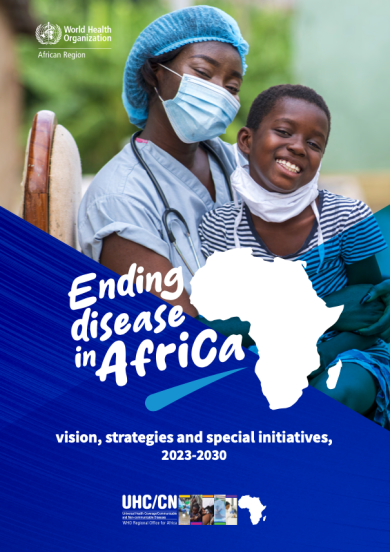
Ending disease in Africa: vision, strategies and special initiatives, 2023-2030
While there has been real progress in addressing the burden of disease in the WHO African region, the COVID-19 pandemic has highlighted the link between health, economics and security, as the region saw decades of progress threatened, including positive trends in decreasing inequality. In the African Region the momentum towards achieving the 2030 SDG disease burden reduction targets (SDG targets 3.3, 3.4 and 3B) has stalled.
The COVID-19 pandemic was also a major threat to gains made, such as the eradication of polio in the region, declared in 2020; reduced numbers of new HIV infections in 2021 compared to 2010; and passing the 2020 milestone of the End TB Strategy, with a 22% reduction in new cases compared with 2015. However, the pandemic also disrupted essential health services in 92% of countries globally, 22.7 million children missed basic immunization, there was an increase in malaria and TB, and global deaths from TB rose for the first time since 2015.
Additionally, the African region is seriously affected by climate change, with little resilience since nearly 60% of the region’s population is rural and highly dependent on the climate system for food production. During the COVID-19 pandemic, outbreaks of malaria and dengue fever were reported in Uganda, Rwanda, and DRC, pointing to the influence of climate change on health. This is likely to worsen with increasing climate change, thus increasing pressure on the region’s fragile health system.


